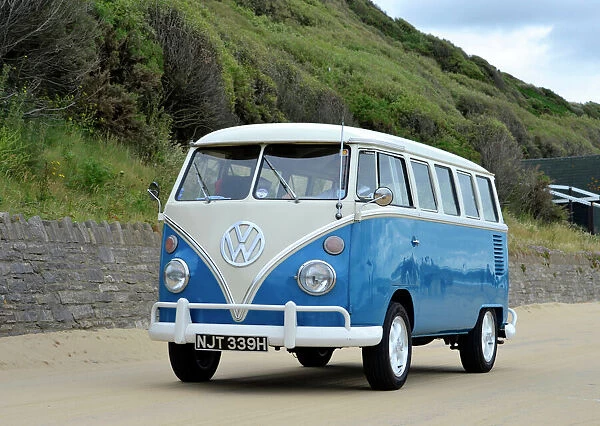In the annals of automotive history, few vehicles embody the spirit of adventure and freedom quite like the original VW Camper Van. With its distinctive silhouette, iconic design, and boundless versatility, the VW Camper Van – officially known as the Volkswagen Type 2 – has captured the imaginations of travelers, adventurers, and enthusiasts around the world for over half a century. From its humble beginnings in post-war Europe to its enduring legacy as a symbol of wanderlust and exploration, the VW Camper Van remains an enduring icon of motoring culture.
Genesis of an Icon
The story of the VW Camper Van begins in the aftermath of World War II, as Europe sought to rebuild and recover from the devastation of conflict. Against this backdrop, Dutch businessman Ben Pon envisioned a vehicle that could serve as both a commercial transporter and a practical family vehicle. Inspired by the utilitarian design of the Beetle, Pon approached Volkswagen with his concept, laying the groundwork for what would become the Volkswagen Type 2.
Debuting in 1950, the Type 2 – colloquially known as the “Bus” or “Transporter” – featured a rear-mounted engine, spacious interior, and versatile layout that made it ideal for a variety of applications. From cargo transport to passenger shuttling, the Type 2 quickly gained popularity for its reliability, simplicity, and adaptability.
Freedom on Wheels
While the Type 2 initially found success as a commercial vehicle, it was its transformation into a camper van that truly captured the public’s imagination. With its cavernous interior, pop-top roof, and fold-out sleeping quarters, the VW Camper Van offered a newfound sense of freedom and mobility to adventurers and nomads seeking to explore the open road.
Equipped with little more than a stove, a sink, and a fold-out bed, the VW Camper Van became a home away from home for countless travelers, surfers, and hippies in search of adventure and self-discovery. From the beaches of California to the mountains of Europe, the VW Camper Van served as a trusted companion, enabling its occupants to forge lasting memories and connections with the world around them.
Cultural Icon
As the VW Camper Van gained popularity, it became more than just a mode of transportation – it became a cultural icon. Immortalized in literature, film, and music, the VW Camper Van came to symbolize the spirit of the 1960s counterculture, embodying ideals of peace, love, and freedom.
From its appearance in iconic films like “Little Miss Sunshine” to its role as a canvas for artistic expression in the form of vibrant paint jobs and custom modifications, the VW Camper Van captured the imagination of a generation and left an indelible mark on popular culture.
Enduring Legacy
Though production of the original VW Camper Van ceased in 1967, its legacy lives on in the hearts and minds of enthusiasts around the world. From meticulously restored vintage models to modern interpretations built on the same principles of simplicity and versatility, the VW Camper Van continues to inspire a sense of adventure and wanderlust in all who encounter it.
In an age defined by constant connectivity and instant gratification, the VW Camper Van serves as a reminder of the joys of slowing down, embracing the journey, and forging connections with the world around us. As we look to the future, the spirit of the VW Camper Van remains as strong as ever, beckoning us to rediscover the freedom of the open road and the endless possibilities that lie ahead.



